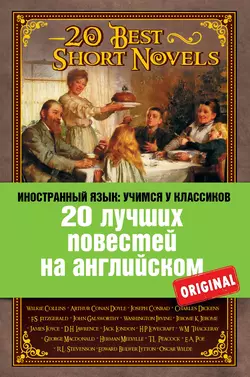20 лучших повестей на английском / 20 Best Short Novels

Коллектив авторов
Тип: электронная книга
Жанр: Иностранные языки
Язык: на английском языке
Стоимость: 199.00 ₽
Статус: В продаже
Издательство: Эксмо
Дата публикации: 17.04.2024
Отзывы: Пока нет Добавить отзыв
О книге: «Иностранный язык: учимся у классиков» – это только оригинальные тексты лучших произведений мировой литературы. Эти книги станут эффективным и увлекательным пособием для изучающих иностранный язык на хорошем «продолжающем» и «продвинутом» уровне. Они помогут эффективно расширить словарный запас, подскажут, где и как правильно употреблять устойчивые выражения и грамматические конструкции, просто подарят радость от чтения. В конце книги дана краткая информация о культуроведческих, страноведческих, исторических и географических реалиях описываемого периода, которая поможет лучше ориентироваться в тексте произведения.